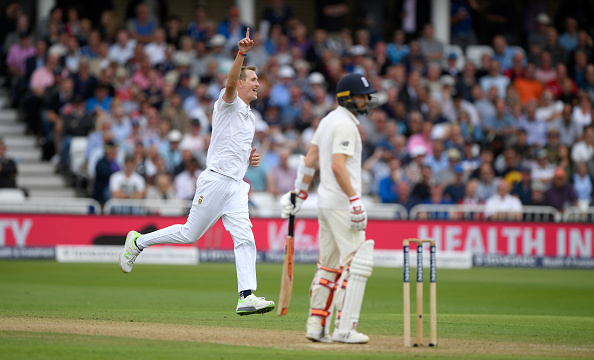It is easy to look back on the Test career of Chris Morris and label it a failed experiment, but doing so suggests that some thought was put into his respective call-ups.
His career, to date, spans just four Tests, all played against England. Two Tests were played in the home series of 2015-16 and two more on the 2017 tour to England.
Despite his apparent T20 skill-set, which has just landed him another mega deal in the Indian Premier League, Morris’ Test career never really had any hype attached to it.
Morris was in handy form in first-class cricket when he earned his call-up to the Test team. He had struck 86 and shared a 153-run partnership with Quinton de Kock as the Titans dismantled the Cape Cobras in Benoni. He also opened the bowling taking 3/13 in the first innings.
It wasn’t that Morris wasn’t a good pick, it was just that there was never any intention to give him a run in the team. He was just a safe placeholder.
Only spectacular success with bat and ball would have secured Morris a place in the Proteas XI for an extended period.
What he delivered was, to be fair to the man, four reasonably middling performances. He started out being asked to open the bowling on the flattest Newlands track in living memory and claimed a single wicket in each of the four innings he was asked to bowl in. In his second stint in the Test XI, he performed better, taking 3/38 against England in the first innings at Trent Bridge, but he took a pasting from a rampant Ben Stokes at The Oval. That performance encouraged the Proteas to abandon Morris as a Test bowling option.

Morris wasn’t dropped for failing the Proteas with the bat so much as lacking the knack for wicket-taking necessary to command a place in the Proteas pace attack.
Across his four Tests, he bowled with consistency, but there was little to suggest he was going to reduce the opposition to dust.
For the last four years, the Proteas have been reluctant to field more than one all-rounder in a Test line-up, meaning that Morris was effectively competing against Vernon Philander for a place in the XI.
New magazine issue: Why De Kock must bat at four
Morris has had the misfortune of coming into Proteas teams with existing problems and being unable to solve them instantaneously.
Conventional wisdom suggests that Morris doesn’t have the pace to crack through Test batsmen’s defences, but then neither does Philander. The perception of Morris as a T20 specialist seemed to taint his Test career.
Morris has achieved his greatest successes in international cricket with the white ball, but his Test career was too short to allow any proper judgement of his red-ball skills.
Calling him up to the Test team wasn’t an experiment because the outcome had been determined ahead of time. Morris filled in while the Proteas nursed their frontline bowlers back to health and was then conveniently sent on his way back to the land of T20.
It is impossible to say what might have become of Morris’ Test career if he had been given a proper crack at it, but it seems a little bit of an insult to call it a failed experiment.
Photo: Gallo Images







